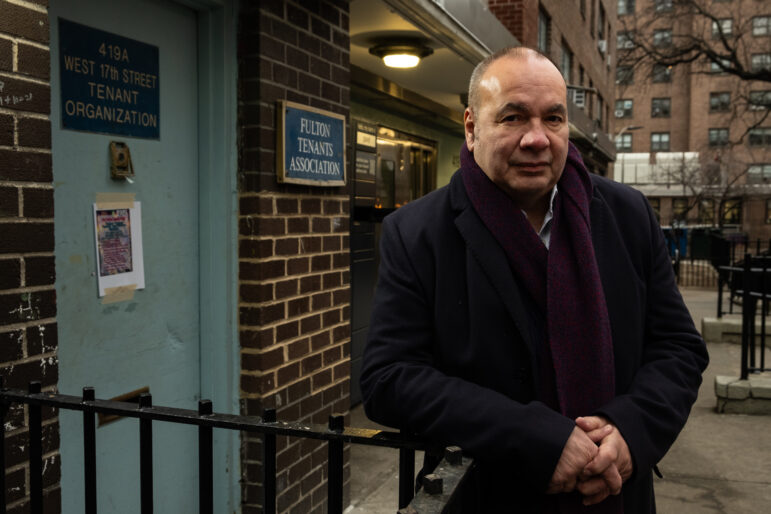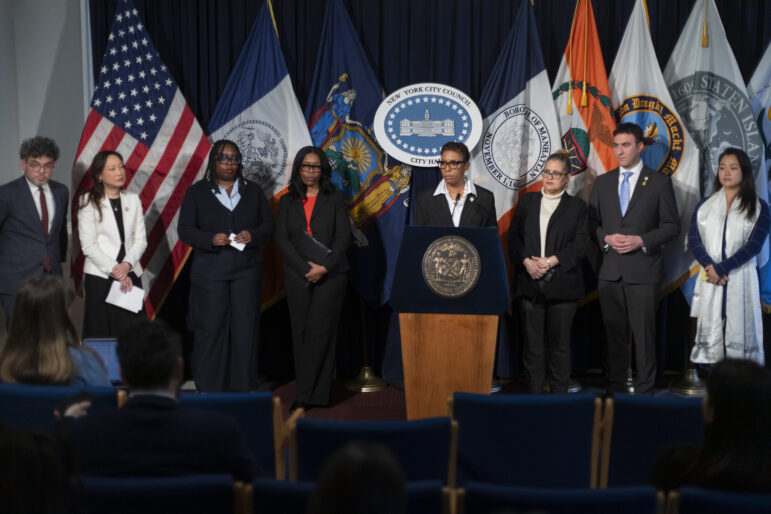Ensuring the well-being of New York state’s younger residents is the job of state agencies from the education department to health and welfare offices to the parole division, and not least the Office of Children and Family Services.
Some contend the current system doesn’t protect children well enough, however, and back the creation of an independent Office of the Child Advocate to evaluate the delivery of youth services, monitor enforcement, hear grievances, ensure that youths receive adequate legal representation, conduct investigations and more. Approved twice by the state Assembly in recent years, the Office appears to have its best chance of creation this spring, with a more motivated state Senate and a governor considered supportive.
Assemblywoman Barbara Clark, a Queens Democrat who sponsored the bill before, is working closely with Senator Martin Golden, a Brooklyn Republican, to redraft bills already introduced in both houses into a shape that can be passed before the legislature adjourns at the end of June.
“If we agree on it, then it will pass,” said Clark. “It’s about carrying a big stick, basically,” she says of the office – but conflicts over whether it will include the power to issue subpoenas or initiate civil lawsuits, and about its degree of independence from existing agencies, are being hammered out now by the legislators’ staffs.
They are also trying to ensure the new office would not duplicate efforts of the Office of Children and Family Services (OCFS) and others, said Bob Herz, legislative director to Golden. “Those are profound discussions,” said Herz, and “at this point we’re moving pretty effectively” in negotiations. Signs are that Gov. Spitzer will be receptive, he said.
Creation of the new office would accomplish a long-sought goal of Gertrud Lenzer, a Brooklyn College sociology professor and director of the Children’s Studies Center there. Lenzer has convened two conferences on the subject, the second of which included Clark, Golden and others in April. Lenzer considers the advocate position essential for conducting both research and investigations, promoting legislation, collaborating with OCFS and local agencies, and functioning as the voice of children themselves.
“I think everybody has great hopes” for the bills’ passage, said Lenzer, who helped draft New York’s legislation. She points to child advocate offices in New Jersey, Connecticut, Rhode Island and other states as proof both of the office’s valid place in government, and its ability to function alongside other child protective agencies without too many turf battles.
If the office of the OCFS ombudsman were more effective, Lenzer and others imply, this discussion might be different. “It’s a system that over 30 years simply disintegrated totally,” she says. Jim Purcell, executive director of the statewide nonprofit Council of Family and Child Caring Agencies, says, “In the last administration I think they got down to one person … it was a nonentity.” But he’s not convinced a child advocate is needed, as he’s seen OCFS perform aggressive investigations and is concerned about duplication of roles. Now that new OCFS Commissioner Gladys Carrion seems determined to beef up the ombudsman’s office, “that probably deserves at least a chance,” Purcell said.
Supreme Court Judge Michael A. Corriero, who presides over the Manhattan youth division, considers himself a “convert” of Lenzer’s because of his view from the bench. Children involved in city and state social services – whether through foster care, his courtroom or elsewhere – “are very vulnerable children … all of these kids are generally coming from our poorest neighborhoods,” Corriero said.
“To have an advocate who is independent, and is viewed as independent by that segment of the public, is a powerful message,” he said. “There is a need for someone who is that child’s champion – and just that child’s champion.”
As for OCFS, spokesman Brian Marchetti said the department is working with Clark and “trying to accommodate the assemblywoman’s concerns.” But the agency has reservations about the bills – at least partly because officials haven’t seen the latest versions.
“Generally speaking, many of the proposed functions would duplicate oversight responsibilities of OCFS and of the child fatality review teams and citizens’ review teams across the state and of the ombudsman’s office,” and it’s unclear whose authority would take precedence, Marchetti said. He also noted that rebuilding of the ombudsman’s office is in process, with the hiring of 10 attorneys underway.
Still, says Herz from Golden’s office, “You can’t have the watchers under control of the watched. It’s the oldest problem in government.”








